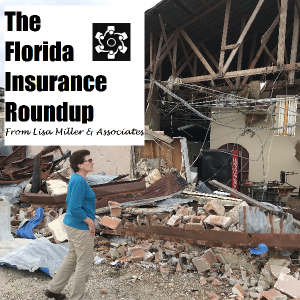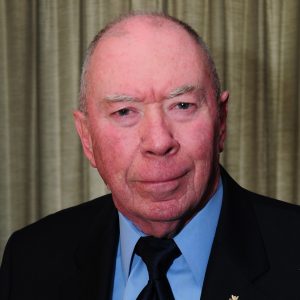Dangers facing our insurance adjusters
 We know that our first responders, beyond the physical dangers they face, can also suffer from the mental stress of their jobs and sometimes traumatic stress. But did you know that our insurance adjusters can, too? Being on-scene of hurricanes and other catastrophes can impact their mental health and the ability to perform their jobs. It’s something all of us in the insurance industry need to take seriously and respond to, as I recently learned during a conversation with two experts that we recorded as the newest episode of the Florida Insurance Roundup podcast.
We know that our first responders, beyond the physical dangers they face, can also suffer from the mental stress of their jobs and sometimes traumatic stress. But did you know that our insurance adjusters can, too? Being on-scene of hurricanes and other catastrophes can impact their mental health and the ability to perform their jobs. It’s something all of us in the insurance industry need to take seriously and respond to, as I recently learned during a conversation with two experts that we recorded as the newest episode of the Florida Insurance Roundup podcast.

Dr. Ray Shelton, Fellow and Director of Professional Development, The American Academy of Experts in Traumatic Stress
Dr. Ray Shelton, Fellow and the Director of Professional Development for The American Academy of Experts in Traumatic Stress, is a former firefighter and paramedic. He said adjusters are no different than fire, police, and EMS, as they’re right there on the front-line of action, too. “They have a powerful need for control, to help people get their lives back in order,” said Shelton. “But the price that is paid for that, is all of the memories, all of the conversations, all of the sites that they see stays with them. There’s absolutely no delete button in the human brain.”
In her days as a past field adjuster with Liberty Mutual Insurance, Jenny Pye said she went through a gambit of emotions being on-scene of horrific accidents. Now as the Director of Commercial Claims at Pilot Catastrophe Services, part of her job is to look-out for her team of hundreds of catastrophe adjusters. She said adjusters who strive for great customer experience often ignore or cover-up signs of traumatic stress.

Jenny Pye, Director of Commercial Claims, Pilot Catastrophe Services
“But sometimes you get feedback as a manager and hopefully before you get that feedback from your customer, you’re recognizing these issues,” said Pye. “Maybe the adjuster is not as responsive as they normally are. It’s not just answering a text or phone call, if you’re calling about a claim, it can be on a Zoom call and you will see where these folks that are normally engaged are not engaged.” That, she adds, requires claim managers to “finely tune your senses to be aware of what’s going on.”
Jenny and Ray shared some of the other warning signs, techniques on how to help adjusters realize and open-up about their stress, and the consequences of ignoring the problem – for both the adjuster and the company. You can read more about our conversation and listen to the episode titled “Stress & Strain of Adjusting” here.

